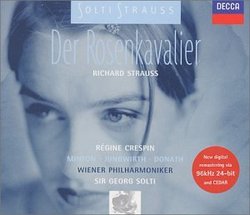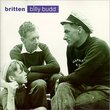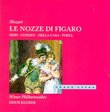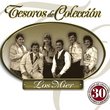| All Artists: Richard Strauss, Georg Solti, Vienna Philharmonic Orchestra, Vienna State Opera Chorus Title: Strauss - Der Rosenkavalier Members Wishing: 0 Total Copies: 0 Label: London Release Date: 9/11/2001 Album Type: Import, Box set Genre: Classical Style: Opera & Classical Vocal Number of Discs: 3 SwapaCD Credits: 3 UPC: 028941749321 |
Search - Richard Strauss, Georg Solti, Vienna Philharmonic Orchestra :: Strauss - Der Rosenkavalier
 | Richard Strauss, Georg Solti, Vienna Philharmonic Orchestra Strauss - Der Rosenkavalier Genre: Classical
|
Larger Image |
CD DetailsSimilar CDs |
CD ReviewsSolti ROSENKAVALIER: Magnificent, Uncut Remastered Recording Jaime J. Weinman | Canada | 09/17/2001 (5 out of 5 stars) "At the time I write this, Amazon.com has little information about this recording, almost ensuring that it won't sell. Too bad, because this is one of the finest if not *the* finest recordings of this opera ever made. Unlike the famous Karajan version, this recording is uncut (and much of what is usually cut is valuable, either for the music or the words). Among the shockingly few uncut recordings of ROSENKAVALIER, it really has only one rival, the Erich Kleiber set (also on Decca), and that is in so-so mono sound while this is in excellent stereo sound. Moreover, the remastering (by Jimmy Lock, one of the original engineers) is a big improvement over the last CD incarnation, free of most of the harshness that afflicted that earlier remastering. This recording has it all: great sound, splendid conducting (Solti rises to the big schmaltzy moments but is also alert and imaginative in the conversational sections, with the result that they never get boring), beautiful orchestral playing. Above all, it has a perfect cast: Regine Crespin in one of her greatest roles (even if she was in slightly better voice for a highlights disc recorded three years earlier), Yvonne Minton as a convincingly boyish Octavian, the young Helen Donath as Sophie, Manfred Jungwirth as a convincingly brutish and loutish Ochs. All these singers characterize so well with their voices that you can practically picture their facial expressions as they sing, so brilliantly does the story come to life. The supporting cast is also great, including the young Luciano Pavarotti in his first appearance in the cameo role of the Italian Tenor. Don't miss this recording." Fabulous Crespin Good Stuff | 03/07/2004 (5 out of 5 stars) "It is probably a good idea to remember Solti came along roughly at the time stereo sound was being introduced (not exactly, but close enough for my argument). I've always felt Decca wanted a conductor capable of demonstrating to one and all why the improvements stereo offered over mono were worth spending money on. Solti was just what they were looking for. Hair trigger climaxes, louder than loud fortissimi, often brisk tempi to the point of being brusk, etc. The thing is, as people got used to stereo sound, the need for "sound demonstration" decreased. Unfortunately, Decca and Solti never figured that out. So, Solti remained Solti. Don't misunderstand me. Decca and Solti have given us a legacy of wonderful recordings (not including, in my opinion, The Ring, but that's another story). This "Rosenkavalier" is one of them. Yes, Solti is still Solti. Overemphatic to a fault. Decca is still Decca. Every small detail in the clearest relief, whether Strauss intended it to be so or not.But it has Crespin. That would be Regine Crespin, to the younger amongst us. One of the great soprani of the 20th Century. And, arguably, in the finest recording she ever made. Those of us who were lucky enough to have heard her in the house on a good night (she had bad ones from time to time) will forever be grateful this recording, the best document we have of her fabulous voice, exists. The rest of the cast is good, although perhaps not quite up to her standard. Yvonne Minton had a distinguised career, and every note she sings her is just about perfect. But she was always, at least to me, a bit too reserved. I always wanted her to just let loose. So far as I know, she never did. At least not in the recording studio. Helen Donath is as lovely here as she was in the house. A great artist. Manfred Jungwirth is teriffic here. He presents a vivid image of Ochs. Pavarotti doesn't have a clue about the satirical nature of what he is singing, of course. You need a Gedda for that. But he sure does sing it!I know I'm not being terribly critical, but I can't help it. Regine Crespin was a force of nature and I cherish my memories of her. And this recording.By-the-way, although the new cover art is abysmal (the original LP box set's cover was silver with a beautiful embossed silver rose in relief) the new mastering actually makes what was already good even better. I marvel at the untiring technical wizards in their endless quest to make something just a little better." Cut vs. Uncut - a comment Jaime J. Weinman | Canada | 06/08/2002 (5 out of 5 stars) "I don't want to argue about the merits of one performance vs. another, because that's obviously purely a matter of taste (I don't share the general high opinion of the Karajan/Schwartzkopf version; I much prefer the Solti, the Kleiber, and even the recently-reissued Bohm version). What I do want to argue about is the statement that the uncut version is a "disappointment" compared to the cut version recorded by Karajan. While I don't have time to go through this in detail, every traditionally-cut passage is one that has an important dramatic or structural function. Take the Baron's monologue. Yes, the usually-cut section has crude lyrics. That's part of the point. More importantly, in the full version of this monologue, we can hear the development of Marschallin's attitude towards Baron Ochs; she starts by being amused by the Baron's anecdotes and is obviously disgusted with him by the end of the passage (Crespin conveys this very well). It's a long opera, and cuts may be necessary in the theatre, but there's simply no excuse for it on a recording where you can always fast-forward through the bits you don't like. So I would say that anyone's first ROSENKAVALIER should be an uncut version -- if you're absolutely allergic to Solti, then get the Bohm version recently reissued on DG (with stereo sound and a cast that's about as good as Karajan's, though not up to Solti or Kleiber)."
|

 Track Listings (15) - Disc #1
Track Listings (15) - Disc #1



